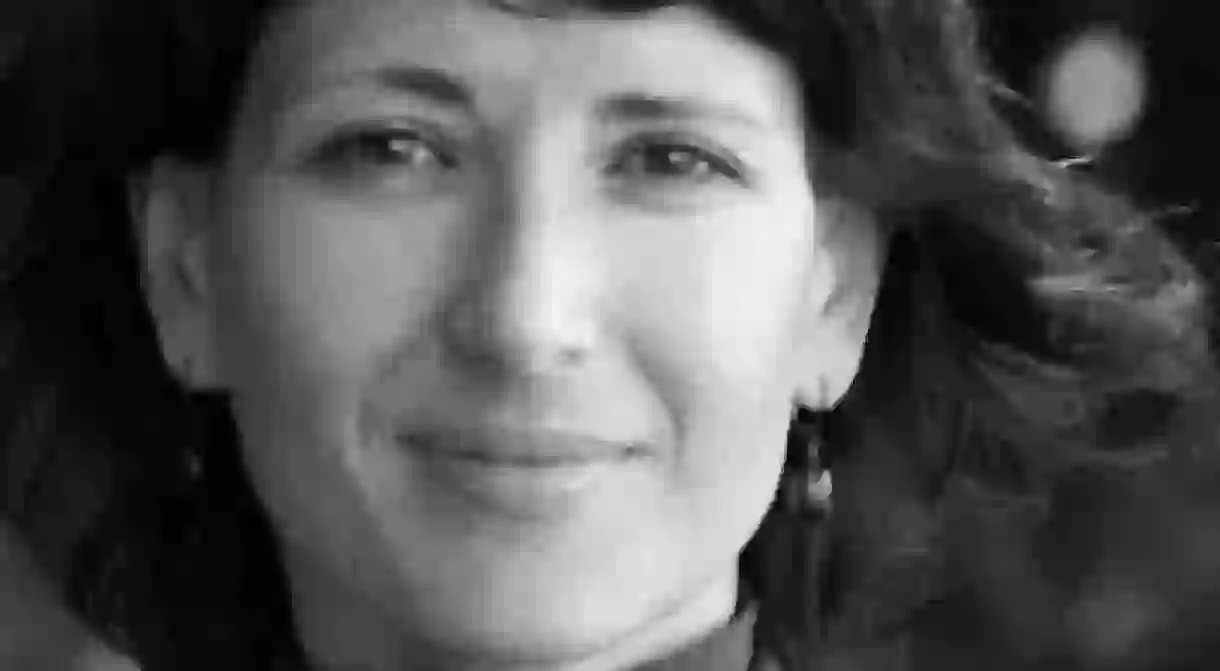Kapka Kassabova and the Question of Bulgarian Identity

Kapka Kassabova’s A Street without a Name analyses the author’s relationship with her homeland, Bulgaria, and records the drastic changes the country went through when the Communist government fell, wiping away the Bulgaria of Kassabova’s childhood. As Helena Cuss writes, it is a books suffused with a sense of nostalgia and loss.

‘Mum, why is everything so ugly?’ This plaintive little question, asked by the author as a child, is at the centre of Bulgarian poet Kapka Kassabova’s memoir A Street without a Name, and poignantly summarizes her experience of growing up in the Eastern Bloc. The People’s Republic of Bulgaria existed between 1946 and 1990 but by the time of Kassabova’s childhood in the 1970s and 80s, intellectual and literary freedom of expression had been firmly restricted by the ruling Communist Party. The boredom and frustration of living under such a regime is vividly portrayed by Kassabova; growing up in ‘Bloc 3’ of a housing estate optimistically and tauntingly called ‘Youth’, she recalls a ‘concrete mudscape’ accompanied by a daily soundtrack of crappy pop music and banal TV programs.
More striking, however, than such memories of Communist Bulgaria which are completely lacking in self-pity, is the transformation of the place which she encounters upon her return to her homeland in the 1990s after the Fall of Communism. It is more interesting and varied than the environment she left, but it has nonetheless become an extremely dangerous habitat: contraband cigarettes and alcohol of dubious quality were now sold from the cellars of Youth 3. Racketeers had emerged from the grotty high rises to charge long-term residents to park in their communal car park. As Kassabova notes, ‘Yesterday’s bully was today’s entrepreneur.’ Indeed, even after the 1989s living conditions in Bulgaria did not improve for some time, and the country was not accepted into the European Union until 2007.
Leaving Bulgaria as a teenager for England filled Kassabova with a confused sense of identity, personal as well as national. At school she faced the solipsistic ignorance of English teenage identity. She recalls a conversation with the class heart throb: ‘’I’m not from Russia,’ I said, ‘I’m from Bulgaria’. ‘Same thing,’ Jamie said.’ The result, however, was to be a distinctive literary and poetic voice, one which welds together the voices of Soviet Bulgaria, Britain and later New Zealand (where she moved as a young woman), as well as the experiences of a global nomad. As Clive James said of her: ‘In the suitcase she has mentally lived out of since she was a little girl, Kapka Kassabova has brought the turbulent memories of 20th century European history with her to New Zealand, where she recollects bad dreams in comparative tranquillity, and always with the phrasing of a born musician.’ This skill also inspired her to write Twelve Minutes of Love, a tango book of extraordinary originality, and despite her lack of fixed national identity, it is clear that her relationship with her home country has been an inextricable influence, as she herself has noted in an interview: ‘Poetry is the medium of the inexpressible, and in that sense my fraught relationship with Bulgaria and the sense of displacement I’ve had since leaving it at 17 probably comes through in my poetry. But I wrote Street without a Name, a memoir of my communist childhood and my return to Bulgaria 20 years later, because I could not tell the whole story through poetry. And of course, every single thing I’ve written – even my new book on tango, Twelve Minutes of Love, is informed and shaped by my early years in Bulgaria, as well as the experience of emigration and lost roots.’ From an adult’s perspective it is, ‘that sorrow never goes away.’













